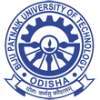|
Sl. No.
|
Name of the Laboratory
|
Lab No
|
Name of the Important equipment
|
Lab Size in sqm
|
|
1
|
|
Basic Electrical Engineering Laboratory
|
|
E105
|
|
1.Fluorescent lamp kit
2.Coupled AC motor & DC generator 3.Star-Delta starter, 3-phase IM,
4.Tachometer
5. DC shunt motor, Load box, 6.Thevnin&Norton kit
7.Ammeter, Autotransformer/variac,
8.Wattmeter, Rheostat, RC Circuit
|
|
110
|
|
2
|
Network and Devices Lab
|
E108
|
1.Superposition & Reciprocity theorem trainer kit
2.Thevnin & norton's theorem study trainer kit
3. Measurement of two port network parameter trainer kit
4.Tuned couple circuit trainer kit, Series AC&DC ckt trainer kit
5.Coupled circuit trainer kit, Maximum Power transfer & compensation theorem study trainer kit
6.Active filter study trainer kit, Passive Band reject filter study trainer kit
7. 3 MH3 function Generator, 3 MH3 function Generator, dual trace CRO, 8.Multimeter
9. Channel Analog Oscilloscope
|
105
|
|
3
|
Electrical and Electronics Measurement Lab
|
E109
|
1.Maxwell's Inductance bridge, Kelvin's Double bridge, Shearing bridge
2.LCR Meter, Energy Meter Trainer, 3.Magnetic Hysteresis curve tracer, 4.Ballistic constant setup
5.Power measurement by two wattmeter method, Calibrate ammeter by potentiometer
|
95
|
|
4
|
Electrical Machine Lab
|
E112
|
1.Ramson Squirrel Cage Induction Motor, 2.Control Pannel For Squirrel Cage Induction Motor
3.Dc Shunt Motor 3 Hp Coupled With Dc Shunt Generator,
4.Digital Tacho Meter,
5.Rectifier Unit,
6.Dol Stator,
7.Dc Ammeter,
8.Dc Voltmeter,
9.3 Point Stator,
10.Field Regulator For Dc Motor,
11.Field Regulator For Dc Generator, 12.Star-Delta Starter Pony Brake Arrangement Bus Bar,
13.Ac Voltmeter,
14.Ac Ammeter,
15.Dc Voltmeter,
16.Dc Ammeter, Upf Wattmeter,
17.Lpf Wattmeter
18.Single Phase Variac,
19.Single Phase Transformer, Field Regulator For 3 Kva Ac Machine, Varivolt 3-Phase Variac,
20.3-Phase Transformer ,Control Pannel For Mg Set,
21.Control pannel For Alternator,
Ramson Dc Shunt Motor 5 Hp Coupled 3 Kva Alternator,
22.Control Panel For Synchronization Panel, Digital Tacho Meter,
23.Rectifier Unit,
24.Stroboscope Dt ,
25.Dol Stator Suitable For Universal Motor, Capacitive Load Box,
26.Power factor Meter
|
102
|
|
5
|
Control and Instrumentation laboratory
|
E115
|
1.DC Servomotor Controller
2. Lead Lag network simulator
3. DC Servometer PID controller
4. Kelvin's Double Bridge Maxwell's Inductane Bridge
5. Schering Bridge Relay control system
6. Displacement measurement trainer using LVDT
7. Thermocouple module, Strain measurement trainer
8. Thermistor module
9. Speed measurement & closed loop of Servomotor,
10. Thermocouple module
11. Strain measurement trainer
12. Thermistor module, Speed measurement & closed loop of Servomotor
13. Oscilloscope
14. Digital Multimeter
15. function generator, Programming logic controller, PLC application trainer, temperature control system
|
110
|
|
6
|
Power Electronics laboratory
|
E116
|
1. SCR VI Characteristic Study Trainer
2.R,RC,UJT Firing Model
3.Cosine Firing Circuit For SCR Converter Single Phase AC Voltage Controller
Single Phase Bridge Converter With R,RL Load, PMDC Motor
4.Inductive Load
5. DC Chopper Trainer
6.Commutation Chopper Circuit Module
7.Three Phase Diode Rectifier
8.Three Phase SCR Module, Three Phase SCR Module, One Phase SCR Power Module, Single Phase Cyclo Converter
9.Digital Multimeter
10.Oscilloscope, Function Generator
11.Series Inverter ,Chopper/Inverter PWM Controller, Chopper/Inverter PWM Controller, Firing Module (UJT)
11.Cosine Firing Circuit For SCR Converter, Oscilloscope Oscilloscope Probe Kit , Buck Converter,
12.DC To DC Fly back Converter Trainer , DC Power Supply
|
108
|
|
7
|
Power System Lab
|
E121
|
1.Cable Fault Locater,
2.Ac Transmission Line Analyzer
3. Oil Test Kit, Oil Test Kit
4. Differential Relay
|
95
|
|
8
|
Digital signal processing lab
|
E125
|
1. Computers
2. Digital Signal Processor Kit
3.MATLAB software
|
105
|
|
9
|
Microprocessor & Micro Controller Lab
|
E124
|
1.Intel 8085 microprocessor kit(LED display), 2.Intel 8085 microprocessor kit(LCD display), 3.Intel 8086 microprocessor kit(LED display), 4.Intel 8086 microprocessor kit(LCD display), 5.Intel 8051 microcontroller kit(LCD display).
|
103
|
|
10
|
Project
|
E107
|
1.Computer, soldering iron
2. printed circuit board
3. bread board
4. Multimeter, tester
5.player, house wiring wooden board
6. Ammeter
7.Voltmeter
|
110
|




